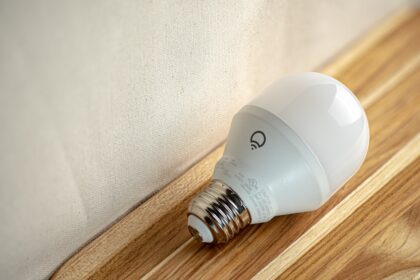QuickAdvisr helps you stay informed with the latest insights. Sleep is one of the most essential yet often overlooked aspects of health. Yet, how much sleep do you really need to function at your best? The answer isn’t one-size-fits-all. In this guide, we’ll explore the science-backed recommendations, the impact of sleep on your energy levels, and practical tips to improve your sleep quality. Let’s dive in!
Why Sleep Matters for Your Energy and Health — QuickAdvisr Insights

Sleep isn’t just about resting your body—it’s a critical process that affects your brain, immune system, and overall well-being. Poor sleep can lead to fatigue, impaired focus, and even long-term health issues like heart disease and diabetes. Understanding how much sleep you really need can help you optimize your energy and performance.
“Sleep is the golden chain that ties health and our bodies together.” – Thomas Dekker
How Much Sleep Do You Really Need? Age-Specific Recommendations

Your sleep needs change as you age. The National Sleep Foundation provides clear guidelines based on age groups. Here’s a breakdown:
| Age Group | Recommended Sleep Duration |
|---|---|
| Newborns (0–3 months) | 14–17 hours |
| Infants (4–11 months) | 12–15 hours |
| Toddlers (1–2 years) | 11–14 hours |
| Preschoolers (3–5 years) | 10–13 hours |
| School-Age Children (6–13 years) | 9–11 hours |
| Teenagers (14–17 years) | 8–10 hours |
| Adults (18–64 years) | 7–9 hours |
| Older Adults (65+ years) | 7–8 hours |
These recommendations are a great starting point, but individual needs may vary based on lifestyle, health, and genetics.
The Science Behind Sleep and Energy
Sleep is divided into two main types: REM (Rapid Eye Movement) and non-REM sleep. Each plays a unique role in restoring your body and mind:
- Non-REM Sleep: This stage includes deep sleep, which is crucial for physical recovery and energy restoration.
- REM Sleep: This stage is essential for cognitive functions like memory consolidation and emotional regulation.
Missing out on either stage can leave you feeling groggy and unfocused. That’s why understanding how much sleep you really need is key to maintaining optimal energy levels.
Signs You’re Not Getting Enough Sleep
Are you unsure if you’re meeting your sleep needs? Here are some common signs of sleep deprivation:
- Feeling tired despite spending 7–8 hours in bed.
- Difficulty concentrating or remembering things.
- Increased irritability or mood swings.
- Frequent cravings for sugary or high-calorie foods.
- Weakened immune system, leading to frequent illnesses.
If you’re experiencing these symptoms, it might be time to reassess your sleep habits.
How to Improve Your Sleep Quality
Getting the right amount of sleep is important, but so is ensuring that sleep is high-quality. Here are some tips to help:
- Stick to a Schedule: Go to bed and wake up at the same time every day, even on weekends.
- Create a Sleep-Friendly Environment: Keep your bedroom cool, dark, and quiet.
- Limit Screen Time: Avoid screens at least an hour before bed to reduce blue light exposure.
- Watch Your Diet: Avoid caffeine and heavy meals close to bedtime.
- Exercise Regularly: Physical activity can improve sleep quality, but avoid intense workouts close to bedtime.
The Pros and Cons of Sleep Tracking
Sleep trackers can be a helpful tool to monitor your sleep patterns. Here’s a quick comparison:
| Pros | Cons |
|---|---|
| Provides insights into sleep duration and quality. | May cause anxiety if data is misinterpreted. |
| Helps identify patterns and habits affecting sleep. | Not always 100% accurate. |













